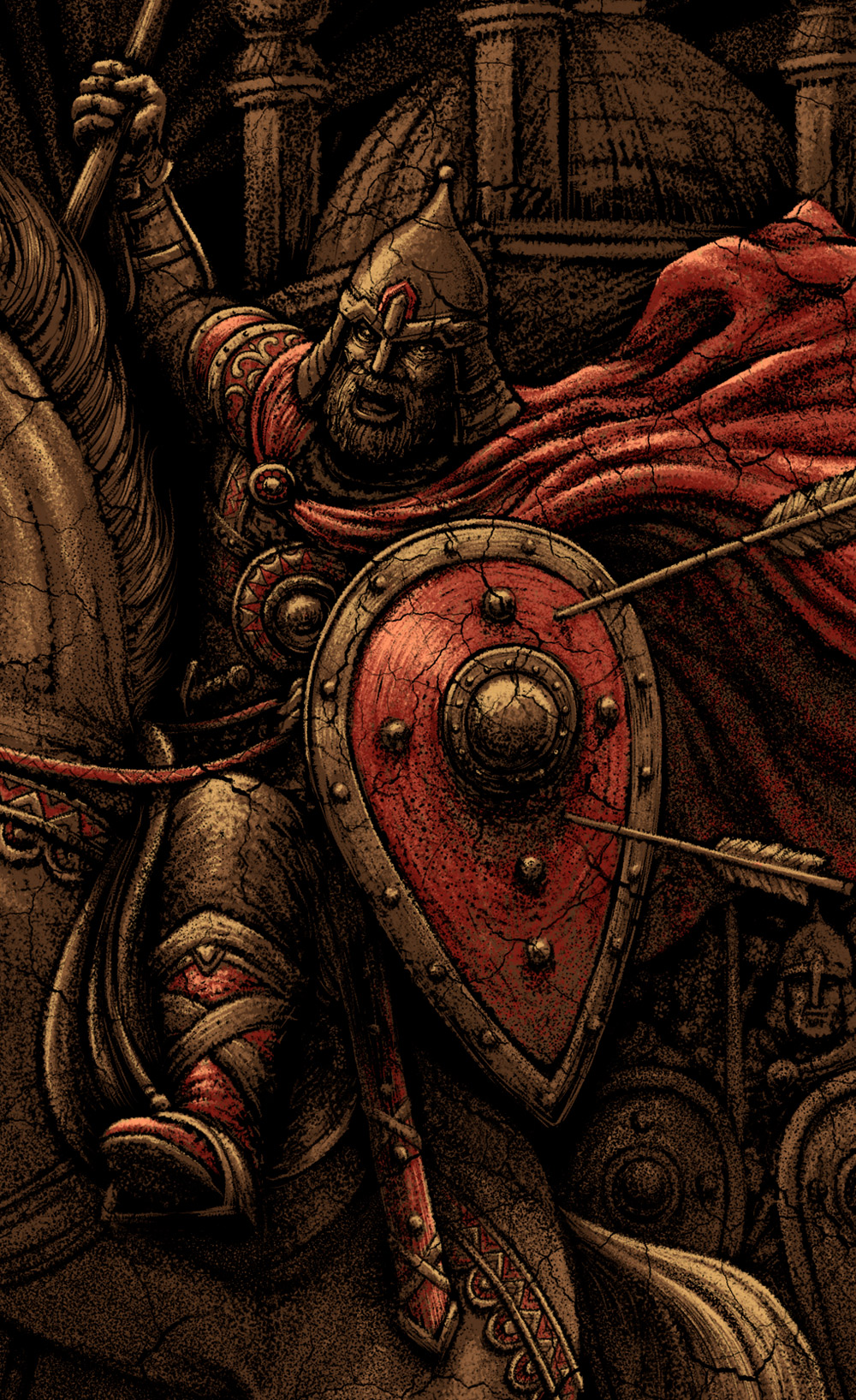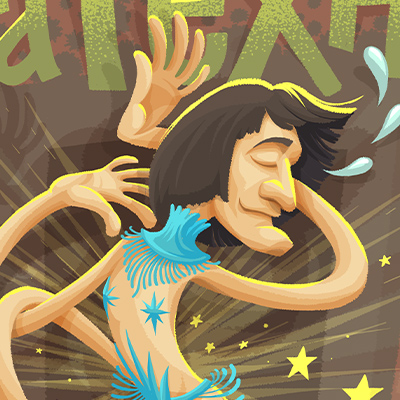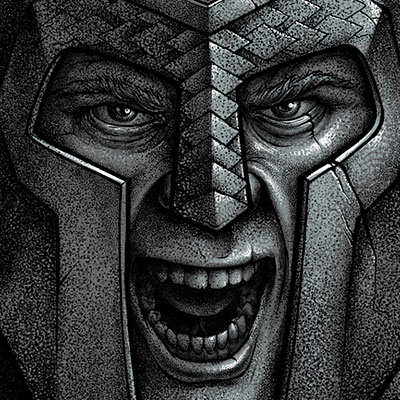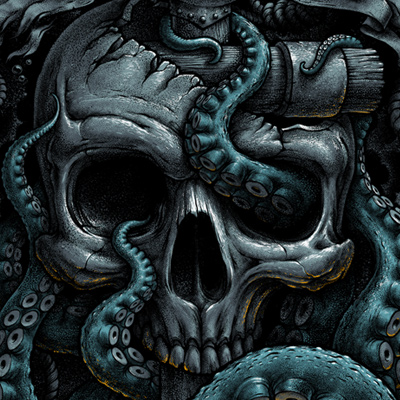
Illustration «Russian warrior»
making off
January 10, 2017
The heroes are the characters of epic tales and legends, distinguished by great strength and performing feats of a religious or patriotic character. In historical records and chronicles, there were indications that some events that had passed into the epic did take place in history. The bogatyrs stood guard at Rus, at the outpost.
According to the etymological dictionary of M. Fasmer, the word “hero” is borrowed from ancient Turk. * bayatur (from where the Hungarian bátor is “bold”), the Danube-Bulg. βαγάτουρ, tour., chagat. batur “brave, military leader”. And also the honorary nickname of bagatury for special military merits in the army from the time of Genghis Khan and Tamerlane. Many specialists are inclined to the Turkic etymology of the term.
According to modern data, for the first time warriors (temniki) of the Mongolian king Chingiz Subudai and Djebe were named heroes in the Russian chronicles in the Ipatiev Chronicle.
There are also three versions of the origin of the word “knight”:
- According to the first and most believable version of “The Knight” comes from the ancient Russian root “beat”, from which – the battle, war, warrior.
- According to the second version, the word comes from the ancient German word Witing.
- According to the third version, the word “knight” comes from the Old Norse “vikingr” – in the Slavic languages the Scandinavian suffix “-ing” changed to “-easy”, the Eastern Slavs pronounced the word “vikingr” as “the knight.”
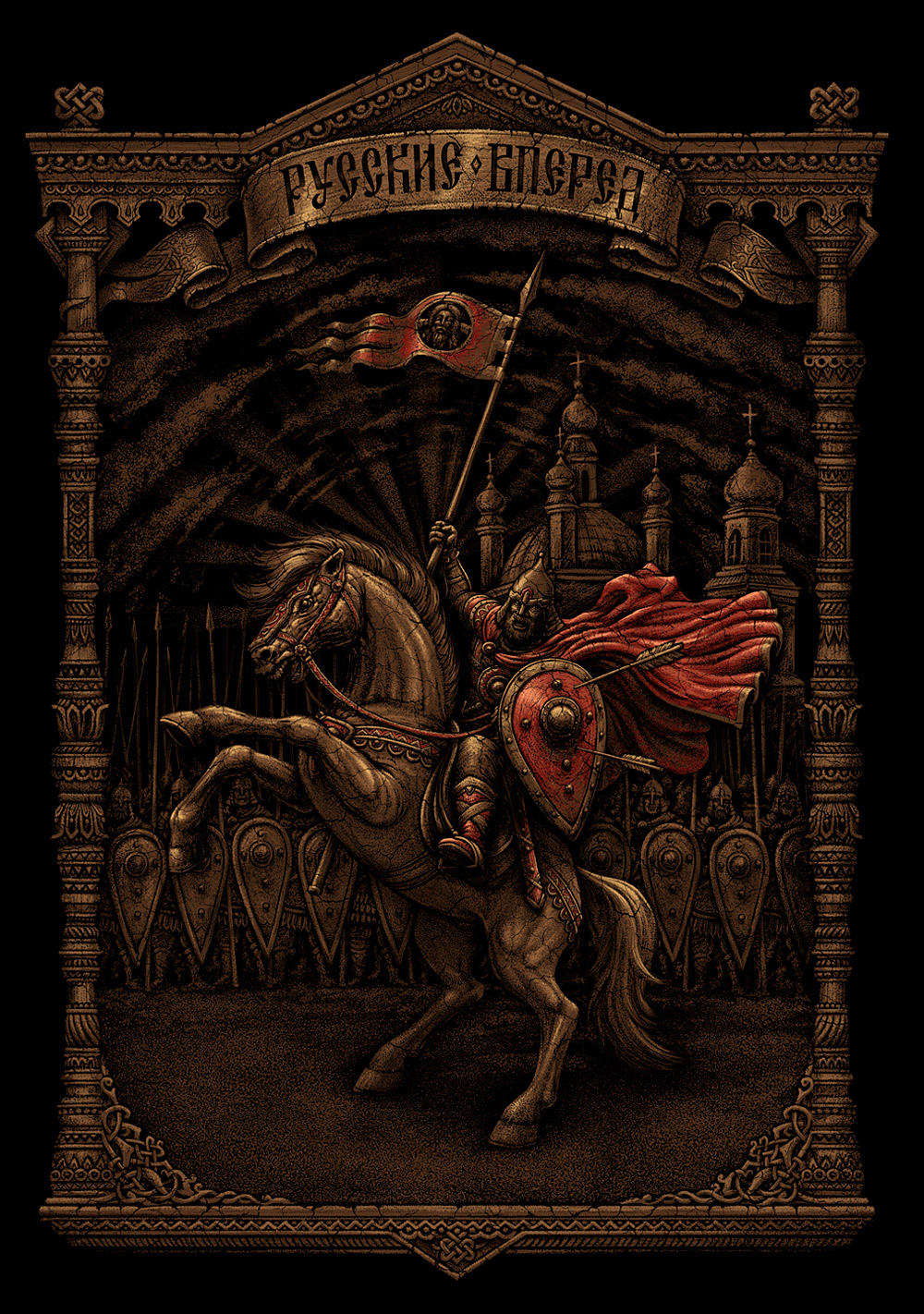
Also known Ukrainian word “zvityaga”, that is courage, and the Polish expression “zwyciestwo”
that is, victory, which can be single-root with the word knight.
